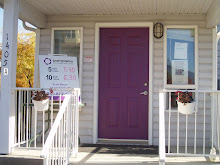money.thecanadianpress.comTORONTO - Real estate fraud is a rare thing but experts in the field say that doesn't mean people should assume it will never happen to them - considering the misery it can inflict on the unwary homeowner, it's worth knowing that it's out there and it's nasty.
"I compare the fraud issue to the lottery," said Ray Leclair of title insurance provider TitlePlus.
"There are millions of transactions in Ontario alone in real property every year. A very minute number of those are fraudulent. So for the public to win or lose in the fraud lottery, the odds are very low."
But it's not an experience you would ever want to go through, he said, even though governments have put in place some measures to make it easier for people to regain ownership title that have been fraudulently pilfered.
"At the end of the day, even if you get your title back, there's the question of (legal fees)."
There are two types of real estate fraud to be concerned about - mortgage fraud and title fraud.
Mortgage fraud is something that is more troublesome for lenders. It involves a fraudster leaving the title or ownership of a property in the current owner's name but mortgaging it without their knowledge, sometimes by fraudulently discharging the existing mortgage. It can also happen when a would-be homeowner falsifies information to get a mortgage.
"That's just a fact of lending," said Laura Parsons, manager of specialized sales for Bank of Montreal in Calgary.
"There are people out there who normally wouldn't get a loan granted to them but because they are fraudulent and give incomplete information or they don't let the lender know all the information, they end up getting approved."
What the average homeowner has to look out for is title fraud. It happens when a fraudster changes the ownership or title of a property into another name in order to sell or refinance the property.
According to the Ontario Ministry of Consumer Services, "it often involves fraudsters using stolen identity or forged documents to transfer a registered owner's title to himself or herself securing a mortgage on the property and then disappearing with the mortgage proceeds."
Parsons calls it a form of identity theft.
"So they know all the details of the person, they go to the land title registry, they pull a title and they find out that there is no encumbrance on the property," she said.
"Now they have basically a ticket to sell the property, so they go in and they can change home ownership."
If the fraudster has enough information, they can change ownership of the property at a land titles office, put a property in their own name. Then they either sell it or go to the bank and get a homeowner line of credit or a mortgage put on that property for their own purposes.
You would think that you would know immediately if you had been scammed, but fraudsters aren't entirely stupid and there are ways to delay finding out.
"They have gone in and taken the title or put a mortgage on and then they will pay it for two or three months," said Leclair.
In the meantime, you're getting all your bills and everything looks fine.
"In the meantime, your mortgage is gone and there's a new mortgage on there - it's going to be paid for two or three months and then two or three months later, they default, there's two or three months waiting time before the bank actually does something so six months, nine months down the road, you now get an angry bank calling you, saying they're going to sell, or you get someone showing up at the door saying you're out the door."
Leclair also pointed to a fraud victim in Vancouver who started wondering why he wasn't getting his property tax bill.
He called city hall and was told "well, you sold the property."
"It's very ordinary things. You don't get a water bill, you don't get those kind of things that could be a hint that something has changed along the way."
Leclair notes that while the government has systems in place to help you if you are defrauded, it's up to the homeowner to monitor. Both he and Parsons emphasized the importance of protecting your private information as a way to avoid becoming a target of real estate fraud.
Parsons said, in particular, you want to keep your social insurance number confidential. And that means not carrying around your SIN card in your wallet where it could be lost or stolen.
"And now with these recycling bins, people are throwing more and more of their mail and personal information in the blue bin - people should get a shredder - $149 buys you some security," she said.
And consider title insurance. Not only does it protect you now and in the future, it provides coverage for fraud that may have occurred prior to your purchase of your home.
Leclair said the insurance costs about $200 to $300, depending on the value of the property, and it is good for as long as you own the home.
And one of the worst things you can do?
"I've read articles where people say the best protection against fraud is to get the biggest mortgage you can on your property - it's a fallacy," said Leclair.
"People figure, well if there's no equity in the property, how can they steal it? Well they can go in and fraudulently discharge the mortgage. I laugh every time I see this. Discharging a mortgage is probably simpler than anything else. It's the bank's signature, it's very easy to imitate. Who knows what a bank's signature looks like?"
http://ca.finance.yahoo.com/personal-finance/article/cpmoney/real-estate-fraud-rare-but-experts-warn-homeowners-lookout-20100408




No comments:
Post a Comment